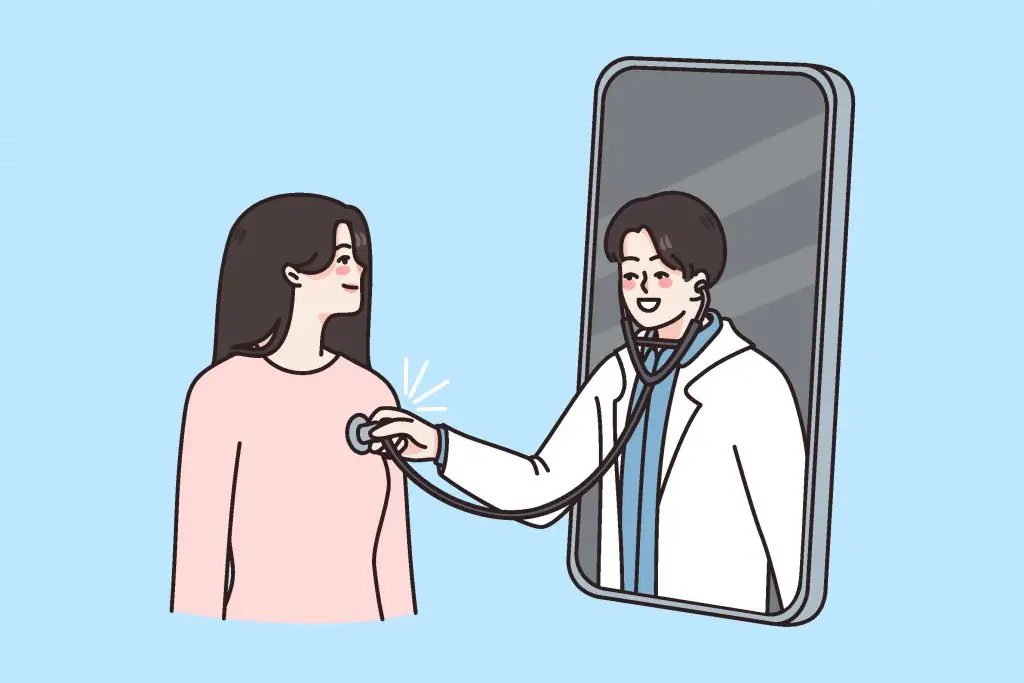Key Highlights
- Low sexual desire, or low libido, is a common concern among women and can affect overall sexual health and relationships.
- Hormone levels, such as testosterone and estrogen, play a critical role in regulating female libido, with fluctuations causing loss of sexual desire at various life stages.
- Medical conditions, certain medications, and chronic illnesses can significantly reduce sexual motivation and function.
- Psychological causes like stress, anxiety, depression, and negative body image are major contributors to sexual problems.
- Effective solutions range from self-help strategies and sex therapy to medical interventions and, in some cases, “female viagra.”
- Open communication with partners and healthcare professionals enables women to address underlying causes and find suitable treatment options for low libido.
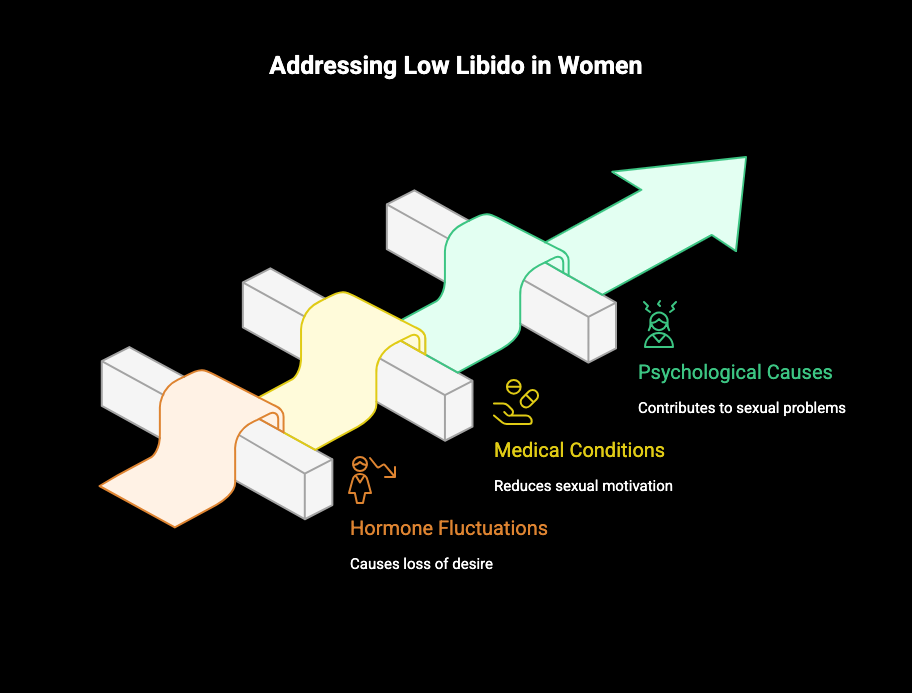
Demystifying Female Viagra: The Truth About Low Desire in Women
Low sexual desire is a common concern among women, and many find themselves searching for effective solutions. Amidst frustration over a lack of options tailored for women, it’s essential to understand what’s really happening and explore genuine paths for help. This post focuses on women, especially those who are premenopausal, who are distressed by low libido.
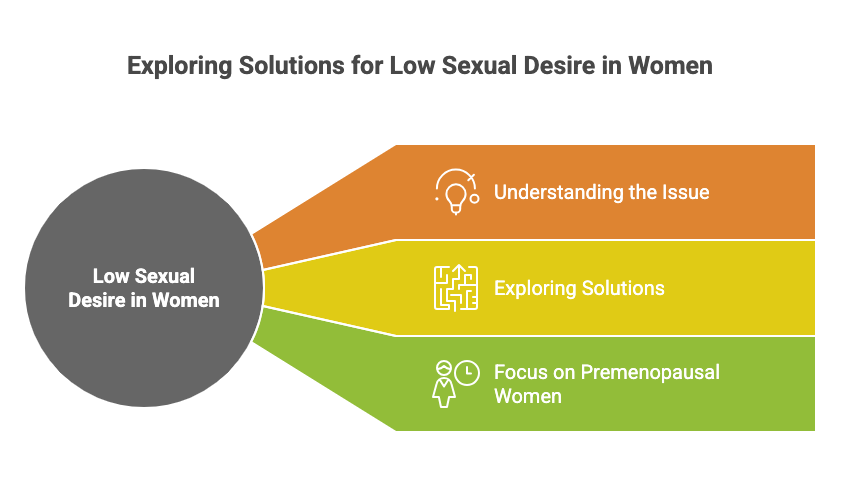
Introduction
Understanding the complexities of female sexual desire is critical, as it intertwines with both physical and psychological well-being. Many women experience fluctuations in sexual interest, which can stem from various factors including hormonal changes and emotional health. Recognizing that low desire does not reflect a woman’s overall worth or femininity is vital. By exploring the causes behind this phenomenon, we can foster healthier discussions about women’s sexual health, ultimately aiding in improving sexual satisfaction and overall quality of life.
Understanding Hypoactive Sexual Desire Syndrome
Recent estimates suggest that approximately 27% of women experience hypoactive sexual desire syndrome (HSDD), a condition marked by a lack of interest in sexual activity. This issue is complex, with sexual desire being significantly influenced by brain chemistry. Certain medications can help rebalance neurotransmitters linked to sexual interest, making evaluation important.
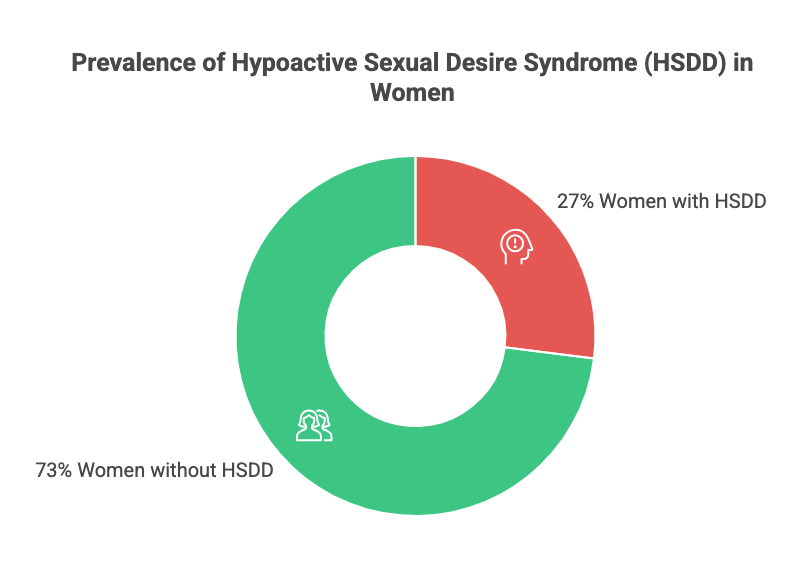
Evaluating the Causes
Before proceeding with any treatment, it’s crucial for women to get evaluated for HSDD and consider factors that might contribute to this condition. Rule out potential causes like medications, mood disorders, pain, and hormonal imbalances, as these can all affect sexual desire.
Medical Treatments Available
The FDA has approved medications such as Filbanserin and Bremelanotide since 2015, specifically to assist women with HSDD. These treatments work by supporting the brain-body loop responsible for sexual interest. However, it’s important to note the potential side effects. If dizziness or fainting occurs, or if there’s concurrent alcohol use, discontinuation is advised, as these drugs are metabolized by the same enzymes as alcohol.
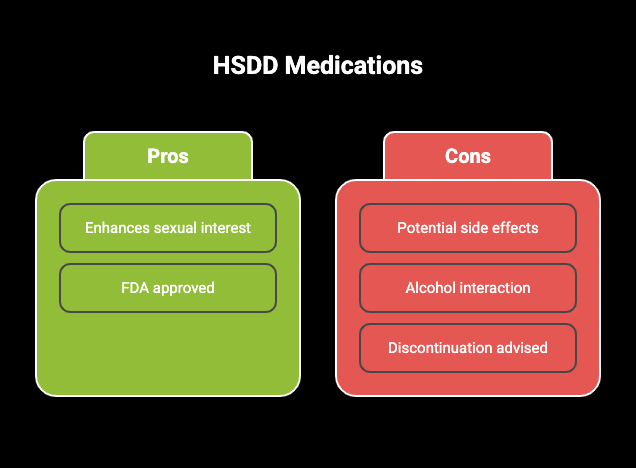
Lifestyle Adjustments
In addition to medical treatments, lifestyle changes can play a supportive role. Prioritizing sleep, reducing alcohol consumption, and scheduling intimacy can all positively impact sexual desire. These adjustments help foster a conducive environment for effective treatment of low libido.
Conclusion
Understanding the complexities of low desire in women is crucial for fostering healthier perspectives on sexual health. By recognizing the interplay of medical, psychological, and relational factors, individuals can engage more empathetically with those affected by low libido or hypoactive sexual desire disorder. Ultimately, addressing these concerns through open communication and appropriate treatment options can significantly improve women’s sexual satisfaction and overall quality of life. Prioritizing women’s health and well-being paves the way for healthier, more fulfilling sexual experiences.
Frequently Asked Questions
Is it normal for a woman’s sexual desire to change over time?
Yes, it is normal for a woman’s sexual desire to fluctuate throughout different life stages. Factors such as hormonal changes, psychological states, and relationship dynamics can all contribute to these variations. Understanding and accepting this natural ebb and flow is essential for overall well-being.
When should low libido be considered a cause for concern?
Low libido should be a cause for concern when it persists over time, causes distress, or negatively impacts relationships. If changes in desire are accompanied by physical or emotional symptoms, consulting a healthcare professional may help identify underlying issues and appropriate treatment options.
What can a woman expect during a medical evaluation for low desire?
During a medical evaluation for low sexual desire, a woman can expect questions about her medical history, lifestyle, emotional health, and relationship dynamics. Physical exams and possibly lab tests may be conducted to identify underlying medical or hormonal issues affecting libido.

